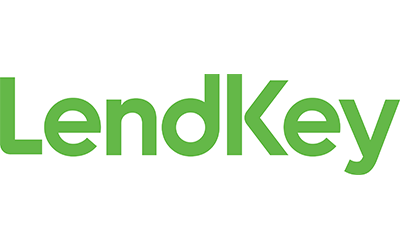Under the right circumstances, student loan refinancing can save you a lot of money and help you manage your student loan debt more effectively.
If you’ve done your research and are certain that refinancing is right for you, it’s time to start reviewing your options. Each private lender has different requirements for eligibility, including your credit, employment background, and your current loan balance amount.
We’ve gathered some of the best student loan refinancing companies for you to explore. Take a look at each one and decide which is right for you. Then, reach out and start the loan application process so you can begin taking advantage of your refinance benefits.
7 Best Student Loan Refinance Companies
1. Earnest
Earnest is a strong option for graduates with high credit scores and heavy student loan debt.
2. LendKey
For borrowers looking to refinance loans with slightly lower credit, try LendKey. The average borrower’s credit score is 680, indicating a little more flexibility than some of the other lenders we’ve discussed.
3. SoFi
SoFi loans have several unique features that make them stand out. The company can help you refinance federal and private student loans, and it provides career strategy services.
4. Education Loan Finance (ELFi)
ELFi’s competitive interest rates and repayment terms are buoyed by the fact that you can earn $100 with a Fast Track Bonus by applying and accepting a loan within a 30-day window.
5. Citizens Bank
Citizens Bank sets itself apart with its rate check feature that allows you to obtain an interest rate estimate in as little as 2 minutes, all without impacting your credit score.
6. CommonBond
CommonBond‘s borrowers save an average of $24,046 by refinancing and can benefit from a high refinance maximum of up to $500,000.
7. MEFA
Though its full name is the Massachusetts Educational Financing Authority, you don’t have to live in Massachusetts to qualify for a student loan refinancing with MEFA.
7 Tips for Comparing Student Loan Refinance Lenders
1. Compare interest rates from multiple lenders
Look for private student loan lenders that offer competitive interest rates and compare them side-by-side. Additionally, it is important to consider any additional fees or charges associated with the loan to get a full picture of the cost of borrowing.
You should also look into any special offers or incentives that lenders may offer, as well as any restrictions that may be placed on the loan.
2. Compare repayment terms
Each lender offers different interest rates and repayment terms. Make sure that you understand the interest rate and how it may change over the life of the loan.
Fees associated with a loan also vary by lender, such as origination fees, closing costs, and other related charges. Find out if the lender charges a prepayment penalty.
Compare the repayment options that each lender offers, such as the ability to make extra payments.
3. Be aware of fees
Some student loan refinancing companies may charge origination fees, application fees, or prepayment penalties. Be sure to compare fees and costs between various companies and weigh it with the benefits of refinancing.
4. Read customer reviews
Reading customer reviews can help you to understand the experiences of other borrowers who have used a particular lender or type of loan. Reviews can provide insight into the customer service, loan process, and overall satisfaction with the lender.
5. Look for extra benefits
Look for additional benefits such as principal reduction or interest rate discounts.
A principal reduction is a reduction in the amount of a loan’s principal balance. It is sometimes offered to borrowers who are struggling to make their student loan payments to reduce their overall debt burden and make it easier to keep up with payments.
Interest rate discounts are sometimes offered to borrowers to make a loan more affordable. A lender may offer a reduced interest rate in exchange for a borrower making a larger down payment, having a history of on-time payments, or having a good credit score.
6. Understand eligibility requirements
To be eligible for a loan from a lender, you must meet certain requirements. First, you must have a sufficient income to demonstrate your ability to repay the loan. The lender will likely check your credit score to ensure that you have a history of paying your bills on time.
7. Read the fine print
When you sign a loan contract, it is important to read the entire document carefully. Pay attention to all the details, including any fees and interest rates. Make sure you understand the terms and conditions of the loan, including the repayment schedule, late payment fees, and any other fees associated with the loan.
Check for any restrictions on how you can use the loan money, and make sure that the contract does not contain any hidden clauses or other surprises that could put you at a disadvantage. Lastly, be sure to ask questions and get help understanding the loan if needed.

When should you refinance student loans?
There are a few different reasons why you should consider student loan refinancing. The most common reason is to save money.
There are a couple of ways you can do this, and your choice depends on your personal situation. Ideally, if you have a higher interest rate on your existing loans, you can consolidate them into a single, lower monthly payment.
If interest rates have dropped since you took out your loans or your credit has improved, you may qualify for a lower interest rate. In this case, you’d save money both on your monthly payments and on your overall loan.
If you’re struggling to meet your monthly financial obligations, you can also refinance student loans to extend your repayment period. You’ll pay less each month, but end up paying more in interest.
Student loan refinancing also allows you to make one easy monthly payment if you have numerous loans. On the flip side, check for any potential tax implications if you do decide to refinance.
Remember that you’ll lose any federal student loan benefits if you refinance federal loans. These include things like income-based repayment plans and loan forgiveness for public service. Federal student loan borrowers need to carefully weigh the pros and cons before refinancing.
How does refinancing student loans work?
By refinancing, borrowers can potentially secure a lower interest rate, reduce the total amount of their monthly payments, or both.
The student loan refinancing process typically begins by applying with a private lender. Borrowers will need to fill out an application, which will include information on their current loan and their financial situation.
Lenders will then review the application and use their own criteria to determine if they can offer a better deal than the borrower’s existing loan. If approved, the borrower can then choose to accept the refinancing offer.
When refinancing a student loan, borrowers will want to consider the terms and conditions of the new loan. These may include the interest rate, repayment terms, and fees associated with the loan.
It’s important to compare the new loan to the existing loan to ensure that the refinancing is a good financial decision. Borrowers should also consider the impact that refinancing could have on their credit score.
Once the refinance is accepted, the new loan will replace the existing loans and the borrower will start making payments according to the new loan’s terms.
Requirements to Refinance Your Student Loans
If you took out several federal student loans, then the student loan refinance process will be a bit different from what you’re used to. For federal loans, all you had to do was fill out the FAFSA. But private lenders tend to have much more rigid lending requirements.
Here are some of the requirements you’ll need to meet for student loan refinancing:
- Meet the minimum credit score requirements
- A history of making your payments on time
- A regular income
- A college degree
If you don’t have a strong credit history, some lenders will let you apply with a creditworthy cosigner.
Comparing Student Loan Refinance Companies
When researching student loan refinance companies, you want to get offers from multiple lenders. This allows you to compare loan offers and see who has the best student loan refinance rates and loan terms.
Here are a few things you should consider when you’re comparing offers from lenders:
- What kind of interest rate does that student loan refinance company have?
- Do they offer flexible repayment options?
- Does the lender offer deferment options for borrowers that go through financial difficulties?
- What are the minimum credit score requirements?
- Does that borrower offer a cosigner release option?
- Are there any other benefits you should consider?
Student Loan Refinancing FAQs
What is student loan refinancing?
Student loan refinancing is the process of taking out a new loan to pay off one or more existing student loans. This allows the borrower to consolidate their loans into a single, lower interest loan with a single monthly payment.
The new loan can have a lower interest rate, which can save the borrower money over the life of the loan. The borrower may also opt for a longer loan term, which can reduce the monthly payments but will increase the total amount of interest paid.
What are the risks of refinancing student loans?
When you refinance federal student loans with a private lender, you’ll no longer have access to federal loan benefits and government protections. That means you won’t be able to take advantage of helpful federal programs like income-driven repayment, deferment, and forbearance if you experience difficulty making your monthly payments.
Another risk of refinancing is that borrowers may end up paying more in the long run. Some borrowers may choose a longer repayment term when refinancing, which can lead to more interest being paid over the life of the loan.
When is the best time to refinance student loans?
If you are considering refinancing your student loans, you may need to wait until after graduation. Most lenders require a degree before they will consider refinancing, though some may have more relaxed requirements. You also typically must be out of school before refinancing. However, there may be some exceptions to this rule as well.
Refinancing is most advantageous when interest rates are low and your credit rating is high. It’s also recommended if you’ve made significant progress in paying down your student loan debt, as this can help you get better terms on your refinanced loan.
What credit score is needed to refinance student loans?
The credit score needed to refinance student loans varies depending on the lender and the loan type. Lenders typically require a minimum FICO score of 620–640 to qualify for refinancing.
However, some lenders may require a higher credit score depending on the terms they are offering. Those with lower credit scores may still qualify for refinancing, but may be subject to higher interest rates or fees. Conversely, those with higher credit scores will likely qualify for better loan terms and rates.
Can I refinance my student loans if I have bad credit?
Refinancing your student loans is possible with bad credit. However, you may be required to provide a cosigner or collateral to qualify. Additionally, your interest rate may be higher than if you had good credit.
Do you need income to refinance student loans?
Most student loan refinancing lenders have minimum income requirements to be eligible for refinancing. So, if you don’t make much money, your refinancing options may be limited. However, several lenders are willing to work with low-income borrowers.
How is student loan consolidation different from refinancing?
Student loan consolidation is a program offered by the government in the form of a Direct Consolidation Loan, issued by the U.S. Department of Education. This option allows you to combine multiple loans into a new single loan.
With student loan refinancing, you’re taking out a new private loan that will replace your current federal and private student loans.
The main difference between the two is that most people refinance to get a lower interest rate and more favorable repayment terms. Meanwhile, a Direct Consolidation Loan doesn’t offer a change to the loan terms. They take the average rate of the loans you’re consolidating and round it up to the nearest eighth of a percent (0.125%).
When is it a bad idea to refinance my loans?
It’s not a good idea to refinance your loans if you’re pursuing a federal loan forgiveness program, like the Public Service Loan Forgiveness Program (PSLF). Refinancing could cause you to become ineligible and lose out on such options.
It’s also not a wise choice to refinance if you’re in an unstable job situation. If you think you might be switching careers or have a sudden decline in income, you may want to pursue an income-driven repayment plan instead.
Can you refinance your loans while you’re still in school?
If you’re still in college, most lenders won’t let you refinance your student loans, though there are some exceptions. But it makes more sense to wait until after you graduate to refinance your loans. If you wait until after you graduate, you’ll have a job, be more financially stable, and will have had time to build up your credit.
What is ‘co-signer release?’
Co-signer release is a process that allows the primary borrower to remove the co-signer from the loan after they have made a certain number of consecutive, on-time payments. This can help reduce the risk to the co-signer and free them from any financial responsibility for the loan.
How do you qualify for student loan forgiveness?
To qualify for student loan forgiveness programs, you typically must meet certain criteria, such as working full-time in a public service job, meeting income requirements, or enrolling in an income-driven repayment plan. Each program has its own eligibility requirements, so it is important to research the specific program you are interested in and determine if you meet the criteria.










